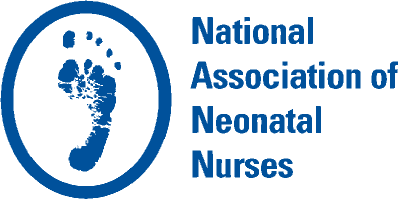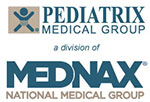NANNP Corner
2020: The Year of the Nurse
Lizz Welch-Carre, EdD MS NNP-BC APRN
NANNP Council Chair
It is 2020, the Year of the Nurse, and we are in the midst of a pandemic. No question, COVID-19 has challenged healthcare services around the world. With more than 283,000 deaths worldwide as of May 12, more than 79,000 in the United States alone, and no clear end in sight, this pandemic has reaffirmed for many why we do what we do. We are nurses and nurse practitioners because we want to care for others and have a career in which we have a sense of purpose.
However, this pandemic has exposed weaknesses in the healthcare system that have put healthcare workers and the public at risk. A few of the deficiencies that have become vividly apparent are the scarcity of personal protective equipment, shortages of ventilators, inadequate numbers of hospital beds in some regions, economic and racial disparities in treatment and access to health care, and lack of staff to meet patient needs (Ranney, 2020; Artiga, 2020).
To address staffing shortages and meet the needs for healthcare access, some states have implemented temporary emergency orders related to licensing and scope of practice. Several states have allowed "fast-tracking" of licensing for registered nurses and advanced practice registered nurses (APRNs). These changes have permitted nurses to practice in areas of need without a long state licensing process. The scope of practice for APRNs has been expanded in a few states. New York, New Jersey, Kentucky, Louisiana, and Wisconsin have temporarily suspended the required practice agreements between nurse practitioners and physicians. Sixteen states have waived portions of practice agreements for nurse practitioners (American Academy of Nurse Practitioners, 2020).
There is some irony in the fact that the World Health Organization declared 2020 the International Year of the Nurse and Midwife and 6 weeks later, on March 11, announced that COVID-19 was a pandemic (World Health Organization, 2020). Nurses have been rated as the most honest and ethical profession in the United States for 18 years and now those characteristics have been thrown into the spotlight (Reinhart, 2020).
In spite of the risks to themselves, nurses are on the front lines, caring for patients with COVID-19 (Mann, 2020). They have held the hands of the dying and tried to keep families "connected", even when they have not been permitted at the bedside of their family members (American Hospital Association, 2020). In maternal/child services, nurses and neonatal nurse practitioners have been tasked with educating families about COVID-19 and their newborns. This has provided opportunities for "shared decision making" (National Association of Neonatal Nurses & National Perinatal Association, 2020). Neonatal nurses have embraced the role of surrogate parent when a parent has COVID-19 and is unable to be with their baby (World News Tonight, 2020).
This pandemic will take a toll on many. Those on the front lines, although trained to provide health care, were not necessarily trained to cope with some of the tragedies they are encountering. Thus, in spite of nurses' natural tendency to help, burnout may prove to be a challenge when the pandemic resolves and life goes back to "normal" (Kelly, 2020). It is likely that many of us will be impacted by the virus directly, know someone who has been affected by it, or face the pandemic's economic ramifications.
The year 2020 may prove to be a defining year for nurses. Now may be the time to try to address deficiencies that have become apparent in our healthcare system. As nurses and nurse practitioners, we can
- advocate for our profession so that we are better prepared for crises
- continue to be innovative with new technology to enable families and patients to remain connected
- become involved in programs to address racial disparities in health care
- study how changes in nurse licensing and expansions in the scope of practice for nurse practitioners impact access and healthcare outcomes
- address the stigma associated with mental health disorders so we and our colleagues can feel comfortable seeking services for them
- continue to be leaders who collaborate with others to provide the best health care based on evidence, science, ethics, honesty, and compassion.
This is indeed the Year of the Nurse.
References
American Academy of Nurse Practitioners. (2020, May 6). COVID-19 state emergency response: Temporarily suspended and waived practice agreement requirements. https://www.aanp.org/advocacy/state/covid-19-state-emergency-response-temporarily-suspended-and-waived-practice-agreement-requirements.
American Hospital Association. (2020, April 22). Nurses rely on teamwork, technology and compassion while caring for COVID-19 patients. https://www.aha.org/other-resources/2020-04-22-nurses-rely-teamwork-technology-and-compassion-while-caring-covid-19
Artiga, S. O. (2020, April 21). Growing data underscore that communities of color are being hit harder by COVID-19. Kaiser Family Foundation. https://www.kff.org/coronavirus-policy-watch/growing-data-underscore-communities-color-harder-hit-covid-19/
Kelly, L. (2020, April 20). Nurse burnout, stress from COVID-19 pandemic pose a challenge for leaders. Nurse.com. https://www.nurse.com/blog/2020/04/20/nurse-burnout-stress-from-covid-19-pandemic-pose-challenge-for-leaders/.
Mann, B. (2020, May 2). Nurses left vulnerable to COVID-19: 'We're not martyrs sacrificing our lives.' National Public Radio. https://www.npr.org/2020/05/02/848997142/nurses-left-vulnerable-to-covid-19-we-re-not-martyrs-sacrificing-our-lives
National Association of Neonatal Nurses & National Perinatal Association. (2020, May). Joint position statement, May 2020: Mothers with COVID-19 and their newborn infants. http://nann.org/uploads/About/PositionPDFS/Position%20Statement%20COVID-19_NPA%20and%20NANN.pdf.
Ranney, M. G. (2020). Critical supply shortages—the need for ventilators and personal protective equipment during the COVID-19 pandemic. New England Journal of Medicine, 382(18), e41. doi:10.1056/NEJMp2006141
Reinhart, R. J. (2020, January 6). Nurses continue to rate highest in honesty, ethics. Gallup. https://news.gallup.com/poll/274673/nurses-continue-rate-highest-honesty-ethics.aspx
World Health Organization. (2020, May 7). Rolling updates on coronavirus disease. https://www.who.int/emergencies/diseases/novel-coronavirus-2019/events-as-they-happen.
World News Tonight with David Muir. [@ABCWorldNews]. (2020, May 6). Heroes among us. [Tweet]. Retrieved from https://twitter.com/abcworldnews/status/1258184772804685825?s=21&fbclid=IwAR0H5fy5zmJUU-8rWlvHokD05J1V_rem--8pnc2HbrWEEqktgH0_v6fZ6Qg


